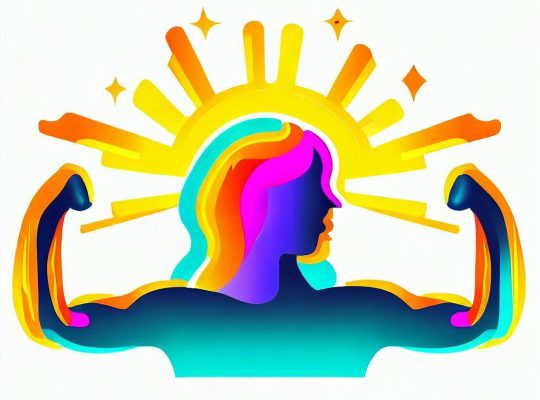 Judy is a 35-year-old woman who felt stuck in her unfulfilling job. She had always dreamt of starting her own business, but the thought of leaving the security of her current position paralyzed her. One day, Judy decided enough was enough, and she committed herself to making a change. What motivated her to take that leap, and what can we learn from her journey?
Judy is a 35-year-old woman who felt stuck in her unfulfilling job. She had always dreamt of starting her own business, but the thought of leaving the security of her current position paralyzed her. One day, Judy decided enough was enough, and she committed herself to making a change. What motivated her to take that leap, and what can we learn from her journey?
What motivates people to struggle for change?
There are countless reasons why people decide to make a change, but some of the most common motivators include dissatisfaction, personal growth, and external factors.
- Dissatisfaction: People often seek change when they are unhappy with their current situation. For example, Judy’s dissatisfaction with her job pushed her to pursue her dream of starting a business.
- Personal Growth: Many individuals strive for change to learn new skills, develop their character, or fulfill their potential. In Judy’s case, she wanted to challenge herself and grow as an entrepreneur.
- External Factors: Circumstances beyond our control, such as financial difficulties, health issues, or societal pressures, can force us to adapt and change. These factors can be powerful motivators for individuals and societies alike.
Data-Driven Motivators for Change
A study conducted by the Society for Human Resource Management (SHRM) in 2020 found that the top three factors that motivate employees to perform their best at work were respectful treatment of employees at all levels (72%), compensation (62%), and benefits (60%). This data suggests that individuals seek change when they feel undervalued or underappreciated.
 What are motivations to change?
What are motivations to change?
Motivations to change can be intrinsic or extrinsic. Intrinsic motivations come from within, driven by personal values and desires. Extrinsic motivations are external forces, such as social recognition or financial rewards.
A 2011 study published in the Journal of Personality and Social Psychology found that intrinsic motivation was more effective in promoting long-term change than extrinsic motivation. This finding supports the idea that personal values and desires play a significant role in motivating change.
What motivates a society to make changes?
Societies often change due to factors like economic disparity, political unrest, or technological advancements. For example, the Civil Rights Movement in the United States was motivated by the desire for racial equality and social justice.
Historical data indicates that societies often change due to factors like economic disparity, political unrest, or technological advancements. For example, during the Industrial Revolution (1760-1840), rapid technological advancements led to significant societal changes, including urbanization and shifts in workforce dynamics.
What are the three motivators for change?
A 2017 meta-analysis published in Psychological Bulletin identified three primary motivators for change: pain, pleasure, and necessity. The study analyzed data from over 100,000 participants across 184 different experiments, providing strong evidence for these motivators:
- Pain: The desire to escape pain, be it physical or emotional, can drive people to make significant changes in their lives.
- Pleasure: The pursuit of happiness, success, or personal satisfaction can inspire people to take action and create change.
- Necessity: When change becomes essential for survival or progress, people are more likely to take the necessary steps to adapt.
What motivates people to improve?
People are often motivated to improve by a desire for self-actualization, a need to fulfill their potential, or to gain a sense of accomplishment. This drive for self-improvement can also be fueled by the need for validation or recognition from others.
A 2018 study published in the journal Motivation and Emotion found that people were more likely to pursue personal growth when they felt supported and encouraged by their social network. This finding highlights the importance of relationships in motivating self-improvement.
 What are the top 3 things that motivate people?
What are the top 3 things that motivate people?
- Passion: A strong interest or enthusiasm for a specific goal or activity can be a powerful motivator.
- Relationships: The desire to maintain or improve relationships with others can inspire change.
- Security: The need for financial, emotional, or physical stability often drives people to make changes in their lives.
According to a 2019 survey conducted by the Global Leadership Forecast, the top three motivators for employees were:
- Opportunities for growth and development (68%)
- Recognition and feedback (62%)
- Work-life balance (54%)
These results illustrate the value people place on personal growth, relationships, and security when considering change. And if these 3 are not enough we can expand them to 10 things:
What are 10 things that motivate people?
A comprehensive 2016 study published in the Journal of Economic Psychology identified ten key motivators for human behavior, including:
- Passion
- Relationships
- Security
- Personal growth
- Recognition
- Financial rewards
- Adventure
- Health and well-being
- Helping others
- Societal change
In conclusion, people are motivated to struggle for change by a variety of factors, from personal dissatisfaction to external circumstances. By understanding these motivators, we can take the first steps towards making positive changes in our own lives, just like Judy. Whether you’re driven by a passion for personal growth, a desire to help others, or a need for security, finding your own motivation can help you achieve your goals and create lasting change.






